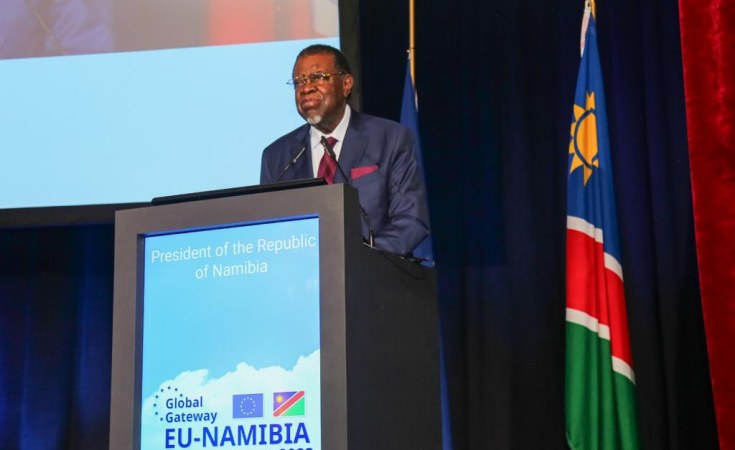European Union and Namibian officials hold a business forum this week in Brussels on developing the country's nascent "green hydrogen" sector.
Critics describe this green energy plan as a form of "colonialism" in which Africa produces its best for Europe while the continent remains underdeveloped.
Seen as a clean alternative, green hydrogen has been touted as a replacement for carbon-based fuels such as coal and oil, which are blamed for contributing to global warming and destruction of the ozone layer.
Namibia does not have the infrastructure for a green hydrogen market, but it has received grants from the European Union, including member nation Germany, to build the foundation to meet EU demands for the fuel.
Political analyst Ndumba Kamwanya has questioned Namibia's insistence on wanting to supply Europe with green hydrogen and critical earth metals, including lithium, which are crucial for the global energy transition.
In an interview with VOA, he said that supplying raw materials to Europe would perpetuate what he calls colonialism, in which resources extracted from the African continent are used in the industrialization of Europe. He says Namibia has its own energy needs.
"It is concerning that Namibia does not have expertise and technology; all these can be used to influence the process but also to extract resources to European countries at the expense of Namibians, in particular local people, yah! We have to guard against green colonization, which is a new form of colonizing Africans," he said.
Nangula Uauandja is the CEO of the Namibia Investment Promotion and Development Board, known as NIPDB, which is helping to organize the forum. She said Namibia has a strategy for local production and use of green hydrogen byproducts such as excess water, ammonia and brine.
"How do we use these resources locally if we have got energy and green hydrogen? How do we industrialize Namibia using the green economy?" she asked. "Instead of transporting from Africa and minerals from Africa, how can we not rather process them where the energy is, or bring them to where the energy is so we can use energy to industrialize our country?"
The government says Namibia is working on legislation to ensure that the resources first benefit the local economy before being exported. Officials say they are working with the NIPDB on this issue. They also point to a recent decision by Zimbabwe to ban the export of raw lithium.
The EU-Namibia business forum takes place during a European Union Global Gateway Forum being held in Brussels on Wednesday and Thursday. The EU charge d'affaires in Namibia, Gosia Lachut, explained what the event will be all about.
"These forums hosted by the European Commission president, Ursula von der Leyen, bring together governments, financial institutions, private sector, civil society and international agencies and it aims to promote global investments in infrastructure centered on priority themes such as digital, energy and climate, transport, health and education," Lachut said.
The EU is Namibia's largest trading partner. Twenty-six percent of Namibia's exports go to the EU.
The largest economic bloc in the world is also a major market for Namibia's fish, meat and grapes. The value of Namibian exports was estimated at one billion dollars compared to imports from the EU to Namibia, worth 600 million dollars, according to 2021 figures released by the Namibia Statistics Agency.


